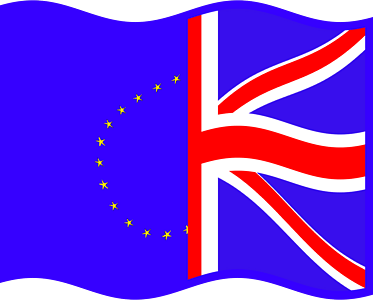europeanpharmaceuticalreviewJanuary 17, 2019
Tag: medicines , pharma industry , Brexit
The pharma industry has called for the government to act to ensure that patients receive their medications in the case of a ‘no deal’ situation on 30 March 2019.

Yesterday, Prime Minister Theresa May’s Brexit deal was rejected by 230 votes, the biggest government defeat in history. The vote comes at the end of five days of debate over the plan. MPs voted by 432 votes to 202 to reject the deal, which sets out the terms of Britain’s exit from the EU on 29 March.
Commenting on the result, the European Federation of Pharmaceutical Industries and Associations (EFPIA) said that there is a "very real, tangible and immediate" threat to patient safety and public health in both the UK and across Europe.
"Now is the time for policy makers in the UK and the EU to put politics aside and put measures in place to prevent patients being harmed by the consequences of Brexit," said EFPIA Director General Nathalie Moll. "In particular from disruption to the supply of medicines including from transport delays at the border and where the development, manufacture, packaging, safety testing and regulation of the medicine no longer benefits from mutual recognition."
The EFPIA is calling on negotiators to agree on a series of actions that need to be taken to protect patients.
These include introducing measures that will continue to recognise UK-based testing, at least until it can be transferred to the EU.
Other measures include enabling the continued UK participation in key data sharing and putting fast track lanes or priority routes for medicines into ports and airports.
Medicines and clinical trial materials should be temporarily exempted from any new customs and borders checks and the European Air Safety Authority (EASA) should recognise certificates issued in the UK to ensure that planes can continue to fly.
The EFPIA also suggests active pharmaceutical ingredients (API) and raw materials for medicines should be exempt from border checks to ensure manufacturing of medicines continues with limited disruption.
Mike Thompson, chief executive of the ABPI, adds: "The focus of pharmaceutical companies is on making sure that medicines and vaccines get to patients whatever the Brexit outcome. This includes stockpiling and duplicating manufacturing processes here and in Europe. We continue to work as closely as possible with Government on no deal planning.
"But we reiterate that ‘no deal’ would prove to be extremely challenging. With time running out we hope Parliament will come together and quickly find a solution to the stalemate and reassure patients that medicines will not be disrupted come March 2019."
Register as Visitor to CPhI China 2019!
-----------------------------------------------------------------------
Editor's Note:
To apply for becoming a contributor of En-CPhI.cn,
welcome to send your CV and sample works to us,
Email: Julia.Zhang@ubmsinoexpo.com.


Contact Us
Tel: (+86) 400 610 1188
WhatsApp/Telegram/Wechat: +86 13621645194
Follow Us:




 Pharma Sources Insight January 2025
Pharma Sources Insight January 2025


